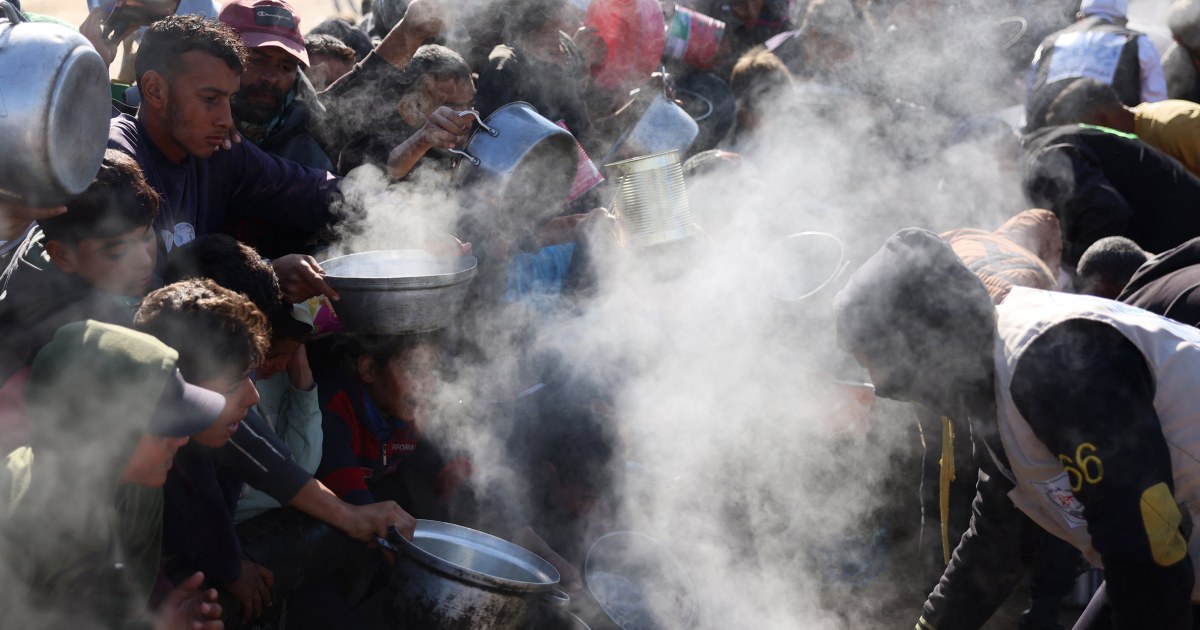World
US sends troops to Middle East as fears of another war escalate

WASHINGTON (TND) — Growing turmoil in the Middle East is forcing the U.S. to send additional troops to the region to try to keep another war from breaking out while Israel continues to bombard Hezbollah with airstrikes and continues its war with Hamas.
Tensions have escalated over the last several weeks after Israel conducted a series of covert operations and airstrikes on Hezbollah that have targeted leaders of the Iran-backed militia group and killed hundreds in Lebanon, threatening an all-out war as Hezbollah began launching missiles into Israel.
It comes at the same time as U.S. hopes of a cease-fire between Israel and Hamas are fading. Defense Secretary Lloyd Austin spoke with Israeli Defense Minister Yoav Gallant over the weekend to press for a cease-fire and simmering of tensions amid concerns about escalation of the conflict, an issue that has been omnipresent for the last year during Israel’s mission to eradicate Hamas following the Oct. 7 terrorist attack.
Despite U.S. appeals for a diplomatic resolution to both conflicts involving Israel, Prime Minister Benjamin Netanyahu has remained committed to continuing the fight. He said in a videotaped message on Monday that civilians in Lebanon need to evacuate their homes to avoid being caught up in a widening air campaign.
Maj. Gen. Patrick Ryder, the Pentagon’s press secretary, said during a press conference on Monday that the number of additional troops being deployed was small. There are already some 40,000 U.S. forces stationed on bases in the region.
“In light of increased tension in the Middle East and out of an abundance of caution, we are sending a small number of additional U.S. military personnel forward to augment our forces that are already in the region,” Ryder said on Monday.
The deployment of additional troops, along with repositioning of aircraft carriers and other warships signals the delicate nature of the situation and how quickly it could escalate into a second all-out war in the Middle East. It also reflects concerns from the Pentagon and White House that U.S. troops could be targeted by Hezbollah or other Iranian proxy forces in the region for attacks.
“We see things deteriorating rapidly, and this is the most prudent measure we can put in place as quickly as possible, to put these troops in there, to give us a little bit more flexibility should this go sideways fast or faster than it is,” said Mark Chandler, professor of practice at Coastal Carolina University’s department of intelligence and security studies and a former senior Defense Department executive.
Hezbollah has been launching missiles and other weapons at Israel for months over its war with Hamas, another terrorist group that is also backed by Iran. It is considered to be one of the strongest groups in the region in terms of fighting abilities and political power.
Israel has ramped up its efforts to combat Hezbollah in recent weeks, starting with the detonation of thousands of handheld pagers that exploded across the country targeting members of Hezbollah. A day later, a similar attack targeting walkie-talkies killed dozens more and injured thousands of others.
Israel has not claimed or denied responsibility for the explosions but is believed to be behind them.
The conflict has continued to escalate with a series of Israeli airstrikes targeting Hezbollah targets in Lebanon that have become increasingly destructive, resulting in the deadliest day in the country since a war in 2006. While there are no signs yet of a ground invasion from Israeli troops to this point, analysts see that as a potential possibility if tensions don’t calm down soon.
Added together, the increased force from Israel is meant to deter the terrorist group from launching missiles and rockets at Israel and allow tens of thousands of civilians that have been evacuated from its north that borders with Lebanon to return home. Israel is hoping that the mounting costs for Hezbollah in the strikes will persuade them to withdraw from the north and stand down from launching attacks.
Hezbollah has vowed to keep fighting and ramped up its retaliatory moves in the immediate aftermath, but analysts see it as unlikely that the group would seek an all-out war with Israel.
“The more this escalates, the more attacks, the more destruction of Hezbollah assets and infrastructure is going to happen. Hezbollah wants to survive,” Chandler said. “If this escalates, they won’t be the power they are today for quite some time.”








